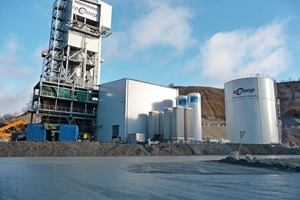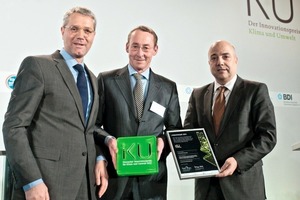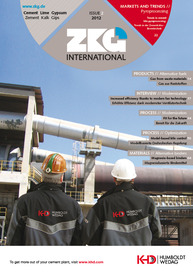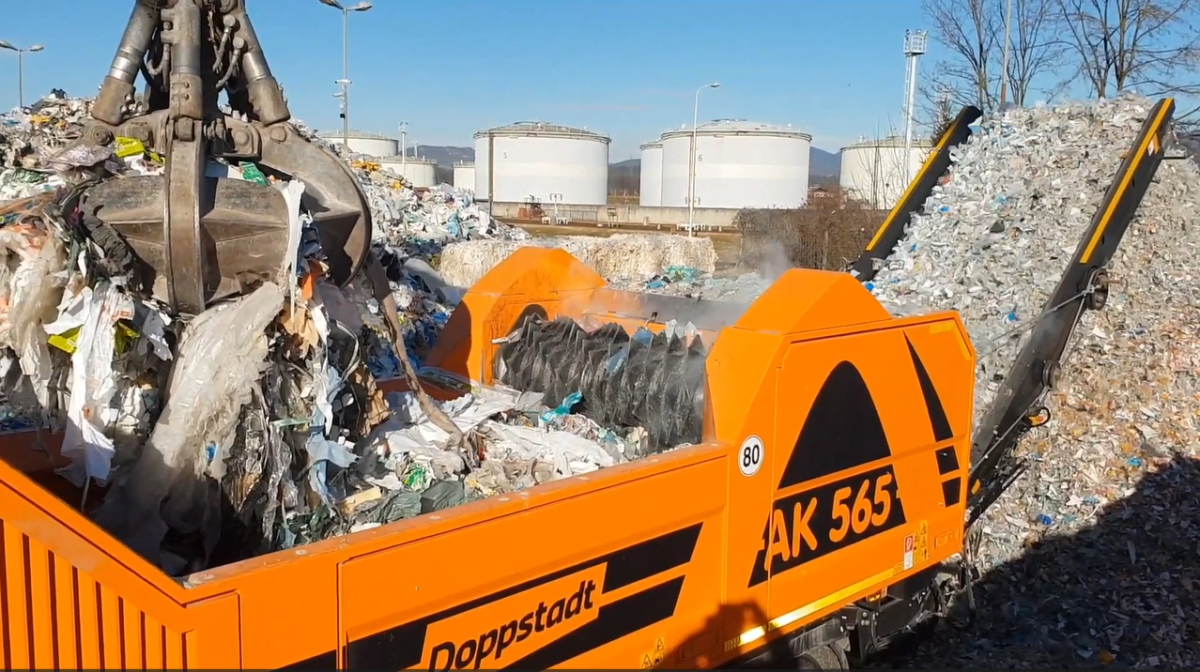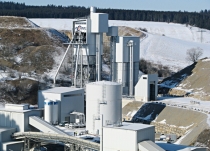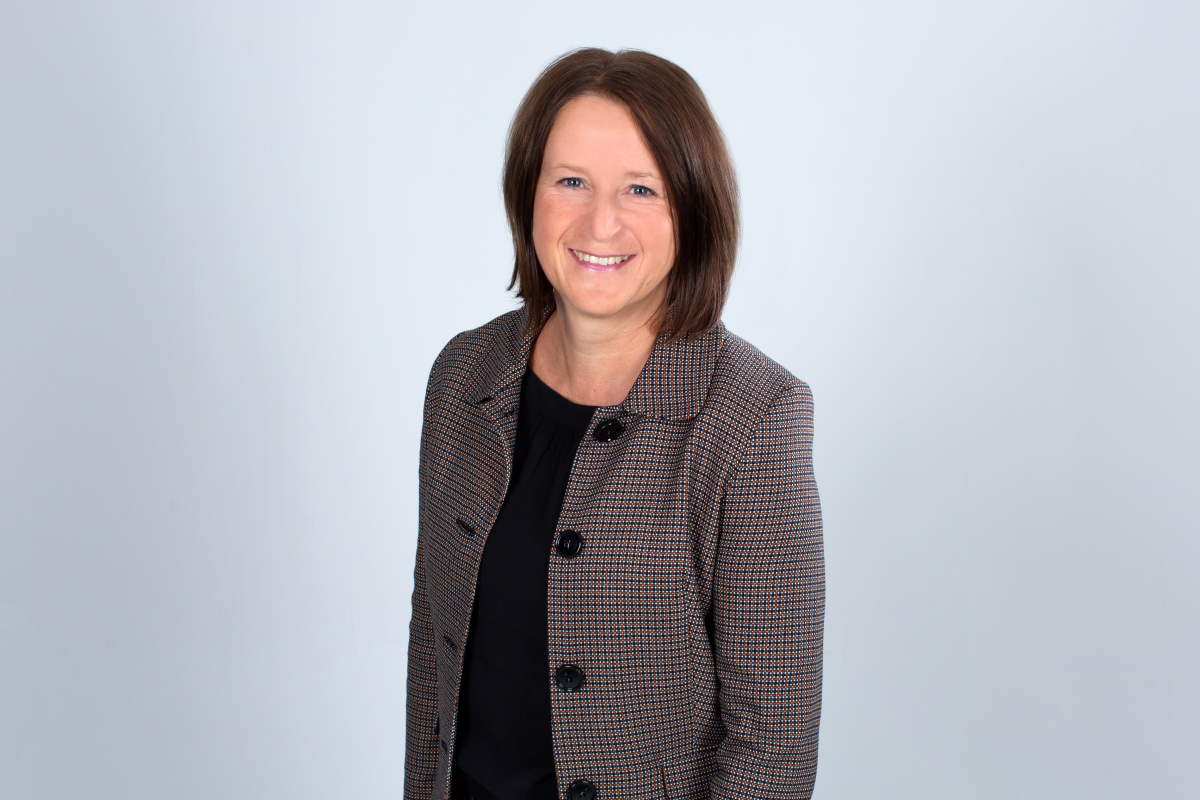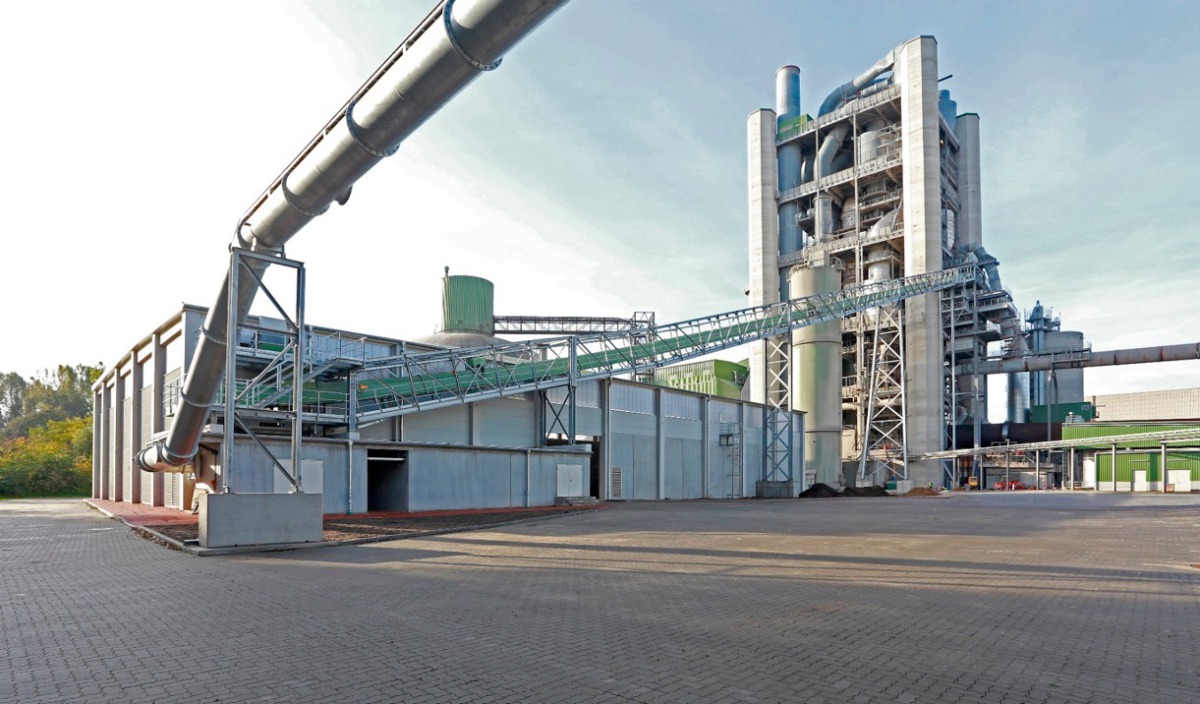A new procedure to produce synthesis gas from flexible input materials – from biomasses to old plastics containing chlorine – should allow energy-intensive industries to greatly reduce the use of fossil fuels as well as energy costs and improve their carbon footprint in the long term. The ground-breaking, environmentally friendly “Ecoloop” technology was developed by a subsidiary of Fels-Werke GmbH from Goslar and received on the 17.01.2012 the German Innovation Award for Climate and the Environment in Berlin.
For the third time, the Federal Ministry for the Environment, Nature Conservation and Reactor Safety and the Federation of Germany Industry jointly honoured innovations in the field of climate and environmental protection that strike out on new paths and are effective. The blue ribbon jury chaired by Prof. Klaus Töpfer chose the Xella subsidiary Fels-Werke, Goslar, from a large number of applicants as the award winner in the category “Process innovations for climate protection”. The scientific assessment was carried out by the Fraunhofer Institute for System and Innovation Research ISI in Karlsruhe.
Fuel produced without emissions replaces fossil energy sources
In a development process lasting several years that was subsidised by the Federal Ministry of Economics and Technology, a new, highly efficient and emission-free gasification technique was developed on an industrial scale. “Ecoloop” systems bring together large-scale methods that have proved themselves in various industries in a new type of technology. The crux of the matter is the production of a pure gas through synthesis and thermal fission in a closed bulk material cycle by adding lime. However, the really clever part of it is that the gas can be produced from both biomasses as well as carbon carriers that are hard to handle (e.g. plastic waste containing chlorine) without producing any toxic organic pollutants such as dioxins and furans and without any flue gases that would require complicated cleaning. The Ecoloop gas is a mixture of methane, hydrogen and carbon monoxide and can be used as both a fully-fledged substitute for fossil fuels (coal, oil or gas) in industrial processes as well as a production feed material, for example in the manufacture of fuels and plastics.
Profitable investment
The first large-scale 32 MW pilot plant is currently being put into operation at the Kaltes Tal lime works of Fels-Werke in Upper Harz. Production should start in the course of the year and the synthesis gas that is produced will be used as a standard fuel for lime production. The former fuels (e.g. natural gas) will then be replaced by Ecoloop gas that can be produced more cheaply.
Xella is already thinking ahead: “This technology can be transferred to almost any other industrial application worldwide. It allows a supply of energy irrespective of the location and will also contribute to the conservation of our natural resources,” explains Jan Buck-Emden, Chairman of the Management Board of the Duisburg-based Xella Group. Another advantage that he sees is that the investment pays off within only a few years and is very profitable.
Ecoloop much cheaper than fossil fuels
“We believe that customers will be able to cut their energy costs by up to 50 % depending on the marginal conditions and will also be able to significantly improve their carbon footprint,” says Roland Möller, co-inventor of the technology and a member of the Management Board at Ecoloop. At the same time, Ecoloop reduces dependence on the volatility of energy prices. The market potential is huge, according to Xella, Fels and independent experts. Inquiries for concrete projects have already been received from various large-scale industries and from the international recycling sector. Target markets are emerging in steel production, automobile manufacture, in chemicals and the production of plastics, although also in sectors such as paper, glass, salt, sugar and cement as well as the recycling industry. Ecoloop GmbH was founded for its international marketing.
Advantages also for the waste industry
The advantages of the Ecoloop technology go far beyond the use of cheaply produced gas as an alternative to fossil fuels that become increasingly more expensive in the long run, the associated CO
2 optimisation and use of the gas as a production feed material: it also offers the possibility of making classic thermal waste recycling much more efficient and eco-friendly, hence clearing the way for completely new recycling solutions. Important raw materials such as rare earths can also be recovered through bonding to lime, depending on the feed materials used. Preparations are currently under way for a targeted marketing of the technology. “If Ecoloop turns out to be a technical and economic success it could develop into a new business segment for the Xella Group in the long run,” predicts Buck-Emden for the future. “On the whole, Ecoloop makes an important contribution to a sustainable protection of the environment and resources in the industrial sector.”
www.ecoloop.eu

